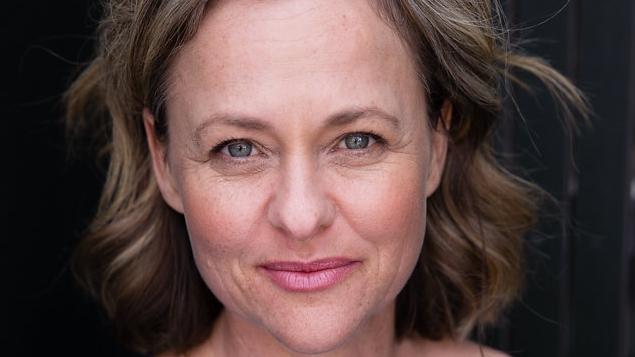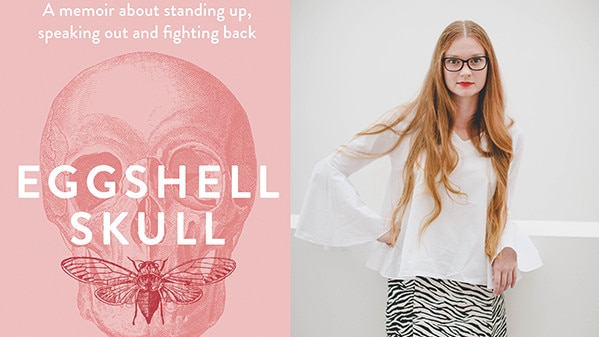Waiting for Elijah by Kate Wild, Eggshell Skull by Bri Lee: excoriating
For Bri Lee, the police and the entire criminal justice system are doing the wrong job and protecting the wrong people.

It is worth pondering the recent explosion in nonfiction titles by women dealing with issues of justice and law, innocence and guilt, the domestic and the social. Four published in past weeks alone — Maria Tumarkin’s Axiomatic, Kate Rossmanith’s Small Wrongs: How We Really Say Sorry in Love, Life and Law, Kate Wild’s Waiting for Elijah and Eggshell Skull by Bri Lee — differ in terms of specific subject matter, tone and structure. Yet each is equally angered and energised by what it sees as systemic failures by our legal system to protect society’s most vulnerable. Each tries to show how the letter of the law is less important than who holds power in a given situation. And that, almost universally, means men.
For Wild, it was the moment in 2009 when a disturbed young man named Elijah Holcombe was shot dead by Senior Constable Andrew Rich in the northeast NSW town of Armidale, in ambiguous circumstances. Wild was an investigative reporter for the ABC at the time and it fell to her to attempt connecting with Elijah’s family in the aftermath. It should have been one sad, gruesome story among hundreds, more grist for the journalistic mill. The first difference in this case was the Holcombe family, their loving reserve and unwillingness to broadcast grief or lay blame at Rich’s feet.
The second was the fact that Elijah’s death is part of a spate of shootings by police of the mentally ill. As the evidence mounts that something larger is wrong, Wild finds her conscience tweaked and her journalistic impulses coalescing on a single subject. She herself enters into a period of depression, a black dog family inheritance that forces her into fresh proximity with the experience of a man who had died for reasons she could not clearly discern.
Waiting for Elijah, Wild’s first book, was the subject of a fierce bidding war among publishers last year, and for good reason. It combines her professional virtues with something viscerally personal and holds the two aspects in tension throughout. The result is taut and episodic, even though it takes place over a number of years and flows through the glacial valleys of the court system. Wild fills the chronological gaps with accounts of her own work and travel — raising a baby, moving to the Top End, falling into a deep psychological trough and climbing out again — while expanding outwards: showing readers who Elijah was (a normal boy who began experiencing paranoid delusions after moving to Sydney for study) and how the medical and legal systems designed to help him failed. She links his death to numerous instances where police have responded with lethal violence to people who are evidently distressed but not an immediate threat to others.
But what most impresses in Wild’s account is her refusal to demonise the police. She exhaustively audits the NSW force’s failures and lapses over a number of years, and allows the silences, elisions and empty official statements by senior offices to speak for themselves. When she finds evidence of care, responsibility, efforts to change thinking or culture on the part of the police, however, she includes and applauds them. This doesn’t change the final moral calculus, though: the law and justice are often divorced. You don’t need to editorialise to reflect this.
Take Wild’s account of the 2012 death of Roberto Laudisio Curti, a 21-year-old uni student who had taken LSD for the first time and stolen a packet of biscuits from a convenience store. She makes a crisp list of events: “Eleven officers held Curti down, fired tasers at him fourteen times, two while he was handcuffed on the ground; two and a half cans of capsicum spray.’’ Meanwhile, in the preceding paragraph, she simply notes: “A senior sergeant involved in police training gave evidence before the coroner that the force police had used against Curti was ‘consistent with current NSW police SOP’s and training’.’’
While Wild interviews scores of significant figures — lawyers, medicos, police, friends, partners and family members of those killed under similar circumstances to Curti and Holcombe — there are two silences at the heart of her account. The first is inevitable: Elijah. He emerges from these pages as an innocent young man in whom mental instability manifested as a belief that the police were out to get him. The tragedy of the piece is that his most paranoid fancies became unalterable fact.
The other is Rich, who refused to speak with Wild despite numerous approaches. He eventually left the force, suffering apparent memory loss and PTSD following the shooting. The reader is left with the helpless fog of unknowing. Does he grieve for Elijah Holcombe? Does he regret what he did? His colleagues tell Wild the same things, over and again: He was a good cop. He was just doing his job.

For Bri Lee, the police and the entire criminal justice system are doing the wrong job and protecting the wrong people. Her account of a stomach-churning introduction to the law as a judge’s associate working in the District Court in Queensland is feistier and saltier than Wild’s, a Gen Xer to Lee’s millennial. But she, too, has a powerful explanatory skill for showing the workings of the justice system — this time from the inside — and shares with her fellow author the experience of having twinned experiences with those her work brings into view.
Lee is the daughter of a policeman: a man of quiet command and complete probity. He inspires in her a love of justice, but fails to disabuse her of a naively binary view of good and evil. A smart and driven law student, Lee finds herself in an enviable position at the top of the junior lawyers hierarchy at the end of her degree. She is lucky, too, in the judge she is assigned to. Another decent man, experienced and unflappable, in the final years of his career. Third in her trinity of good men is Lee’s boyfriend Vincent, a handsome young lawyer who provides her with love and emotional support.
Privately, she comes to see these men as exceptions to the rule. Aren’t men the rapists, wife-beaters and pedophiles she watches in court each day? Aren’t they the hoods who scream come-ons or abuse at her from passing cars while she jogs? And aren’t they all, like Samuel, the sleazy friend of her older brother, capable of manipulating a young girl on the cusp of adolescence into submitting to sexual acts, as he had done to her years before? As we come to appreciate Lee’s competence and sass as a young lawyer, we are privy to a counterweight of self-loathing, self-harm and a growing misandry. Her hatred does not know whether to expand outward or burrow in.
Lee’s decision to seek prosecution against Samuel for historic sexual offences is the personal point of entry to the larger narrative, just as Wild’s sinking into depression was the individual wormhole in Waiting for Elijah. The difference lies in the larger structure built around each author’s circumstance. Lee carves out individual decencies from the massed misogyny and racism she witnesses throughout the criminal law system, but is ultimately overwhelmed by the sheer weight of bad news about the world that arrives via the courtroom. There is an underworld of abuse she alludes to and sometimes masochistically imagines in these pages that cannot be unforgotten.
Yet it is the very extremity of violence she describes that undercuts her personal trauma. This is not to say that the event narrated by Lee is not haunting. There is a low thrum of despair in these pages that belies any simplistic and condescending hierarchy of hurt that a person may visit on another. But once you have explored the notion of the rape and mutilation of very young children by evil men, say, it is hard for readers to recalibrate their shock. It is, indeed, as Lee observes at one point, “a world of awful context’’ that she is living in.
That aside, Lee’s story has the addictive quality of any car crash in slow motion. She has a talent for making the often dreary practice of law seem electric with weirdness and submerged drama, and a particular flair for the one-liner — “A child in a courtroom is always a curious sight, like a live lamb in a butcher’s”, or a description of the empty room of Warwick’s historic courthouse, where judges’ wigs ‘‘sit on each end of the bar table like sleeping pets, waiting patiently for their masters’ return”.
Lee’s book ends in ambivalent triumph, while Wild’s ends with an ambiguous warning, or preparation for a reckoning. Both admit the ways in which a darkness pushed to the side of a life may return to engulf it. We should feel gratitude and optimism that women of talent and intelligence are writing brave, self-aware, excoriating books such as these. We should be equally grateful that the local publishing industry is keen to bring them into the world.
The fact they still need to be written at all should be a matter for national despondency.
Geordie Williamson is The Australian’s chief literary critic.
Waiting for Elijah
By Kate Wild
Scribe, 416pp, $35
Eggshell Skull: A Memoir about Standing Up, Speaking Out and Fighting Back
By Bri Lee
Allen & Unwin, 368pp, $29.99




To join the conversation, please log in. Don't have an account? Register
Join the conversation, you are commenting as Logout